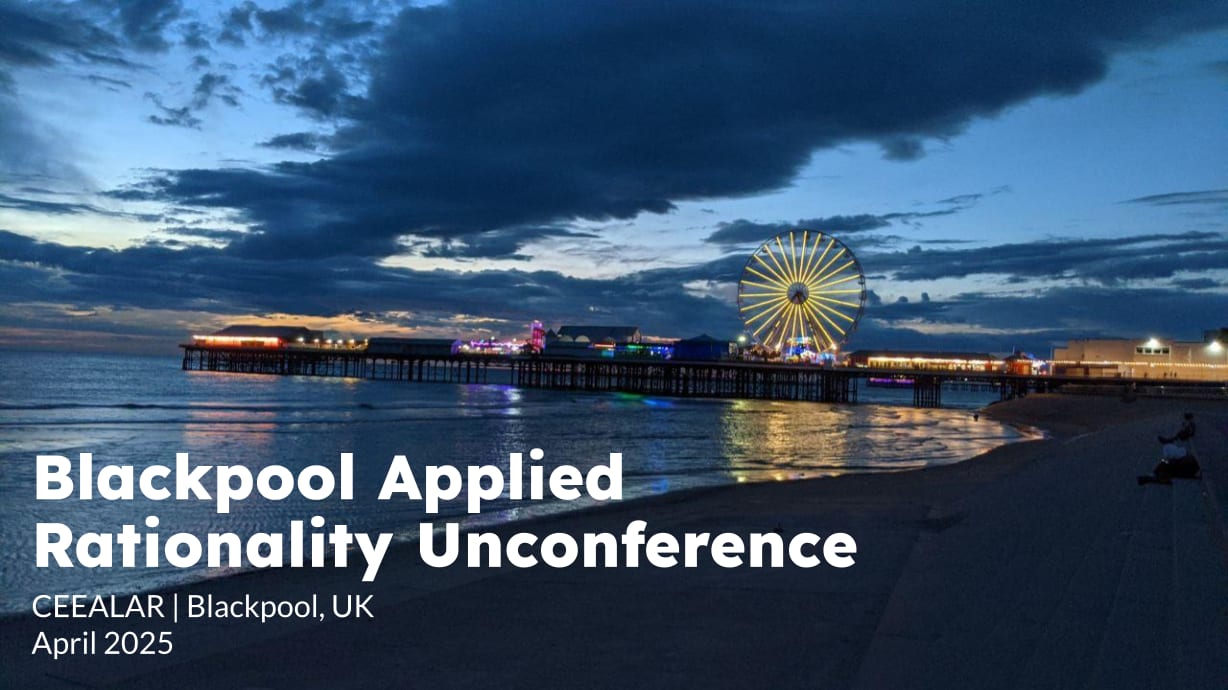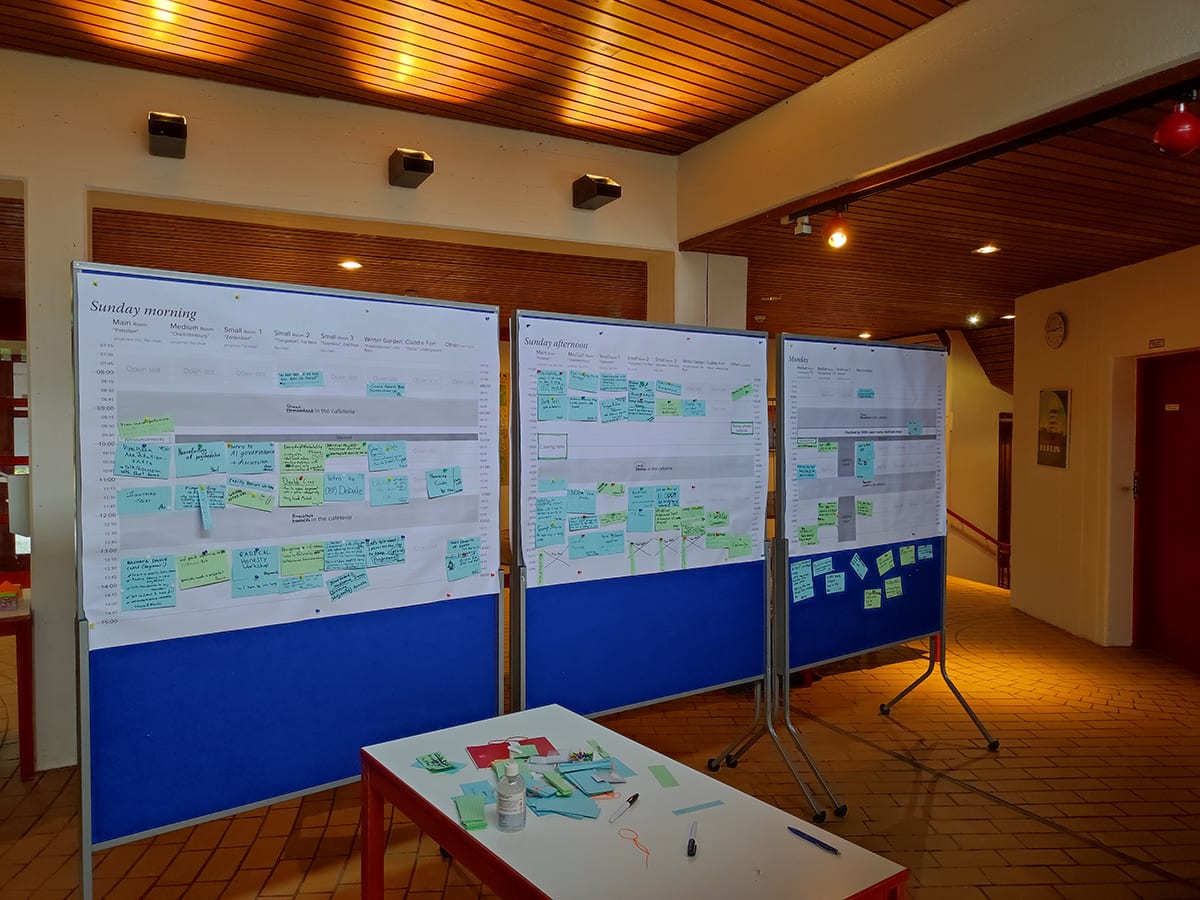LessWrong Community Weekend 2023 [Applications now closed]
Update: [Applications now closed] September 22-25th is the 10th annual LessWrong Community Weekend (LWCW). This is Europe's largest rationalist social gathering which brings together 150 aspiring rationalists from across Europe and beyond for four days of socialising, fun and intellectual exploration. The majority of the content will be unconference style and participant driven. On Friday afternoon we put up six wall-sized daily planners and by Saturday morning the attendees fill them up with 100+ workshops, talks and activities of their own devising. Previous years’ schedules have included… * Double Cruxing * Hamming Circles * Gendlin Focusing * Applied Rationality workshops by CFAR instructors and instructors-in-training * Circling * Authentic Relating games * Improv theatre * Introduction to stand up comedy * Writing rationalist fiction * Dance workshops * Acapella singing * Icebreaker games * Lightning talks * Celebrating failure groups * Giant outdoor chess Penultima * Dungeons & Dragons * Kung Fu basics * Board games * Breathwork workshops * Ecstatic dancing * Radical Honesty workshops * Playfighting for adults * Polyamory and relationships workshops * Sex Q&A roundtable * Quantified self workshops * Moral philosophy debates * AI safety Q&A * How to handle fear of AI Doom * Value drift in EA * The neurobiology of psychedelics * The science of longevity * Morning runs and yoga * Meditation in the rooftop winter garden * Night time swimming * Ted Chiang and Greg Egan bedtime story readings If things like ecstatic dancing, radical honesty and polyamory workshops sound too intense for you, rest assured everything is optional. (I’m British and very awkward so a lot of this stuff terrifies me.) The event takes place in the natural environs of Lake Wannsee on the outskirts of Berlin. So you can spend some time recharging in between making new friends by hiking in the forests, sunbathing or swimming in the lake



Is there a Lighthaven events calendar or newsletter which I can sign up to to hear about these kind of things – all the rationalist-and-adjacent events, conferences and residencies you host?
Every now and again I hear about stuff via word of mouth or stumbling on a post like this but it’s unreliable and sometimes too late.